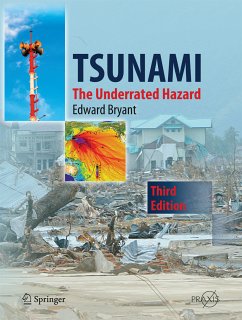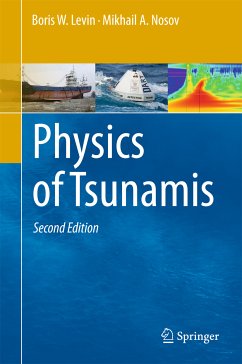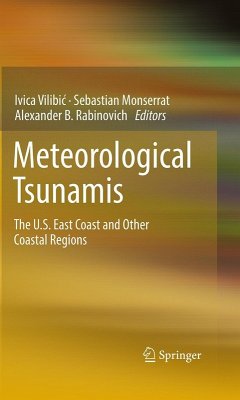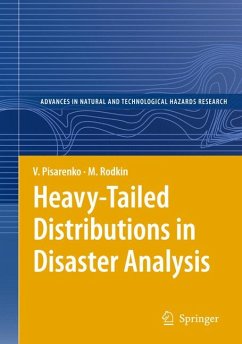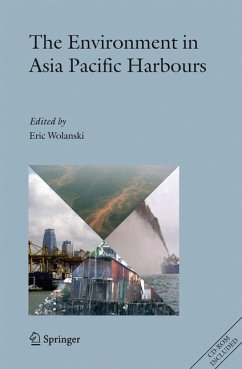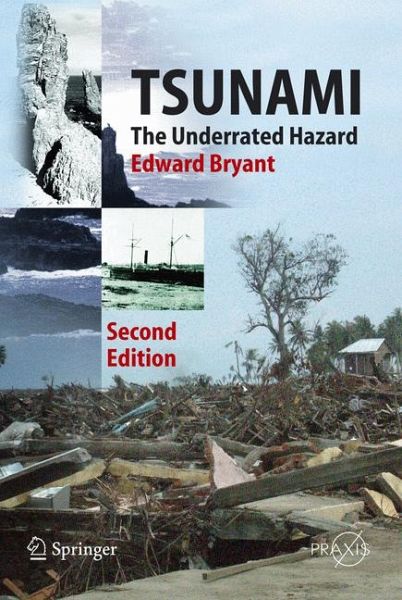
Tsunami (eBook, PDF)
The Underrated Hazard

PAYBACK Punkte
76 °P sammeln!
In the last three years, there have been three large tsunamis in the Indian Ocean, most notably the notorious one which struck on 26 December 2004 and killed more than 238,000 people. It was generated by one of the largest recorded earthquakes in the last 100 years. Such events occur about four times per century, mainly in the Pacific Ocean. Few scientists were aware that the Indian Ocean was vulnerable: only Thailand had been warned of the potential for such an event. However, tsunami are also insidious local hazards. Since 1990, at least eleven events have impacted on the world's coastlines,...
In the last three years, there have been three large tsunamis in the Indian Ocean, most notably the notorious one which struck on 26 December 2004 and killed more than 238,000 people. It was generated by one of the largest recorded earthquakes in the last 100 years. Such events occur about four times per century, mainly in the Pacific Ocean. Few scientists were aware that the Indian Ocean was vulnerable: only Thailand had been warned of the potential for such an event. However, tsunami are also insidious local hazards. Since 1990, at least eleven events have impacted on the world's coastlines, causing devastation and loss of life. Tsunami are underrated as major hazards, mainly due to the misconceptions that they occur infrequently compared to other natural disasters and happen along some distant shoreline, most likely in a developing country. Evidence for past great tsunami, or "mega-tsunami" has also recently been discovered along apparently aseismic and protected coastlines, such as those of Australia and Western Europe. These mega-tsunami are caused by either huge submarine landslides or the impact of meteorites and comets with the ocean. With a large proportion of the world's population living on the coastline, the threat from tsunami cannot be ignored.
Dieser Download kann aus rechtlichen Gründen nur mit Rechnungsadresse in A, B, BG, CY, CZ, D, DK, EW, E, FIN, F, GR, HR, H, IRL, I, LT, L, LR, M, NL, PL, P, R, S, SLO, SK ausgeliefert werden.



